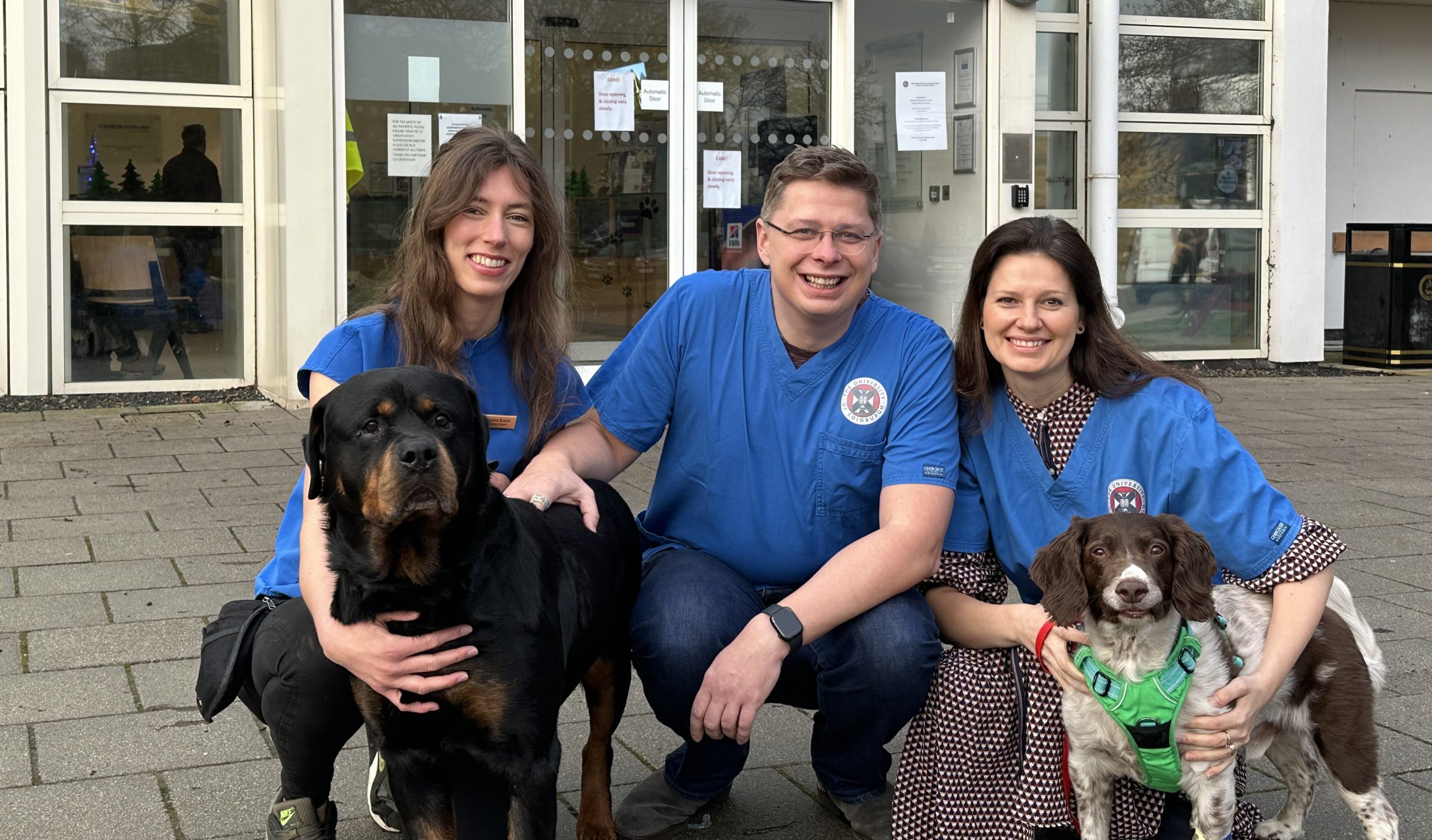
A groundbreaking blood test developed by scientists at the University of Edinburgh promises to revolutionise the way cancer is monitored in dogs.
The test, created by the university’s new spinout, CanCan Diagnostics, stands to benefit a significant portion of the canine population, as cancer impacts around one-quarter of all dogs, with certain breeds experiencing even higher rates.
Employing advanced DNA-based liquid biopsy technology, this innovative test offers a more sensitive, faster, and less invasive alternative to traditional imaging methods for tracking cancer progression. CanCan’s test, named K9-LiquiDXâ, uses a unique tubular device for blood sample collection. This device is designed to stabilise DNA within the sample, allowing for precise sequencing and analysis through a proprietary bioinformatic pipeline. Results from this cutting-edge process are typically available within seven to 10 days.
K9-LiquiDXâ operates by detecting DNA circulating in the blood, a portion of which, in cancer patients, originates from tumour cells. This method, known as liquid biopsy, is already a burgeoning area in human oncology but is just beginning to make strides in veterinary medicine.
Dr. Maciej Parys, a veterinarian at the Royal (Dick) School of Veterinary Studies and director of CanCan Diagnostics, emphasised the novelty and potential of this approach: “We believe our approach of using liquid biopsy to detect and monitor cancers in dogs to be the first application of this type of technology to veterinary diagnostics in the UK and Europe.
“It will help improve disease monitoring for affected pets and their owners, while also providing vets with a novel, minimally invasive and quick to perform diagnostic test,” he said.
Dr. Parys also hinted at the future developments, including breed-specific diagnoses and treatments.
The test is particularly useful at the onset of a cancer diagnosis in dogs. By establishing a baseline result, veterinarians can compare subsequent tests over the dog’s lifetime to accurately monitor disease progression.
CanCan Diagnostics’ journey began with an idea from Dr. Parys, initially supported by the Dogs Trust Canine Welfare Grant. Further backing came from Edinburgh Innovations, the university’s commercialisation service, and several prestigious grants and awards, facilitating the transformation of this concept into a commercial reality.
Chris Sale, CEO of Advanced Genomics, which includes Nonacus and Informed Genomics, shared his enthusiasm about the collaboration:
“I am thrilled to announce the closing of this seed investment in CanCan Diagnostics. The leadership team at CanCan Diagnostics shares a vision that resonates strongly with the core values of Nonacus and Informed Genomics. Together, we aim to deliver advanced cancer genetic tests that will significantly improve patient outcomes.”
Dr. John Lonsdale, Head of Enterprise at Edinburgh Innovations, also expressed strong support for CanCan Diagnostics:
“We are delighted to have supported CanCan Diagnostics to form a company, and look forward to continuing to support them in bringing their novel, minimally invasive test, K9-LiquiDX, to market, where it can improve monitoring of cancer for pets and their caregivers.”
With positive market research feedback from veterinary oncologists and primary care veterinarians, the team at CanCan Diagnostics is optimistic about the future. They plan to launch their product early next year and are already developing additional tests to further enhance diagnosis and personalise treatment for pets with cancer.
Photo: K9-LiquiDX team. L-R Dr Suzanne Busser, Oncology Resident, Dr Maciej Parys, CanCan Diagnostics founder and Dr Magdalena Parys, Head of Radiation Oncology

